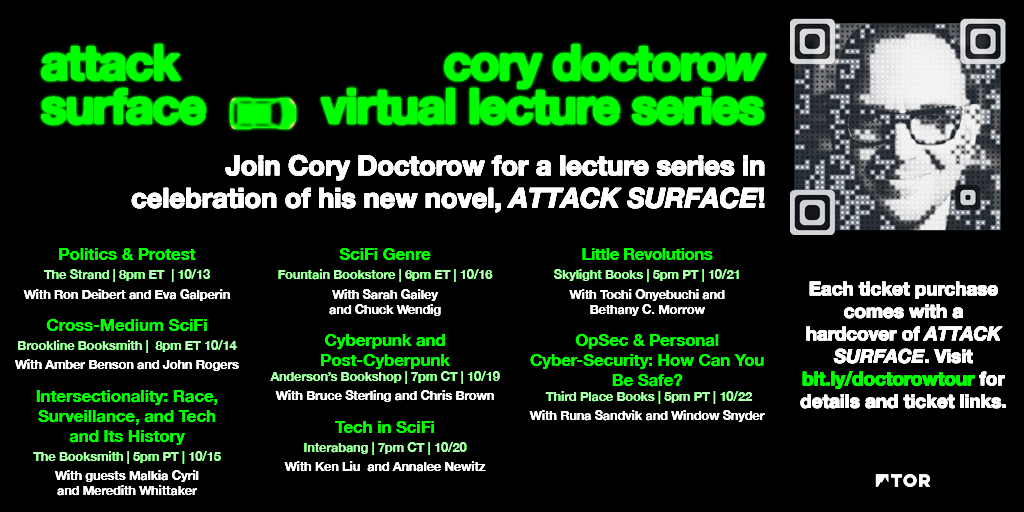
Writing on tor.com, @NB_Chris proposes that dystopian narratives are a form of clickbait: as the "boundary between dystopian fiction and the evening news" blurs, dystopian narratives become political ads.
tor.com/2020/10/14/dys…
1/
tor.com/2020/10/14/dys…
1/
When the @NRA wants to scare old white people, they run ads that look movies adapted from the "second civil war" novels that emerged after 2016, amping up the underlying message of dystopia: to "excuse or encourage our failure to take agency over our own futures."
2/
2/
Brown is a dystopian novelist himself; his recent novel FAILED STATE revisits a world in peril that he documented in two previous novels that blended authoritarian rule and ecological collapse, and finds tantalyzing glimmers of hope.
pluralistic.net/2020/08/12/fai…
3/
pluralistic.net/2020/08/12/fai…
3/
Brown draws a distinction between dystopian sf ("a useful tool to shatter exceptionalist myths and amplify what’s wrong with the world") and weaponized dystopia: "distorts the truth, achieving an effect like those chumbox ads that stroke our darkest fears").
4/
4/
Dystopian sf is especially powerful "when the whole world seems unable to get a handle on what tomorrow will bring" and it is most powerful "when it births a vision of utopian possibility."
("Fighting the Empire is great, but what comes after the Ewok party?")
5/
("Fighting the Empire is great, but what comes after the Ewok party?")
5/
"As pandemic compounds political uncertainty and climate angst to further confound our ability to get a bead on the present, SF has an opportunity to provide fresh visions of what lies on the other side, help us stop doomscrolling through this dystopian Groundhog Day."
6/
6/
Chris is joining me and Bruce Sterling (who also gets cited in his article) for a event as part of the tour for my new novel ATTACK SURFACE on Oct 19 to discuss "cyberpunk and post-cyberpunk."
eventcombo.com/e/Virtual-even…
eof/
eventcombo.com/e/Virtual-even…
eof/

• • •
Missing some Tweet in this thread? You can try to
force a refresh





















